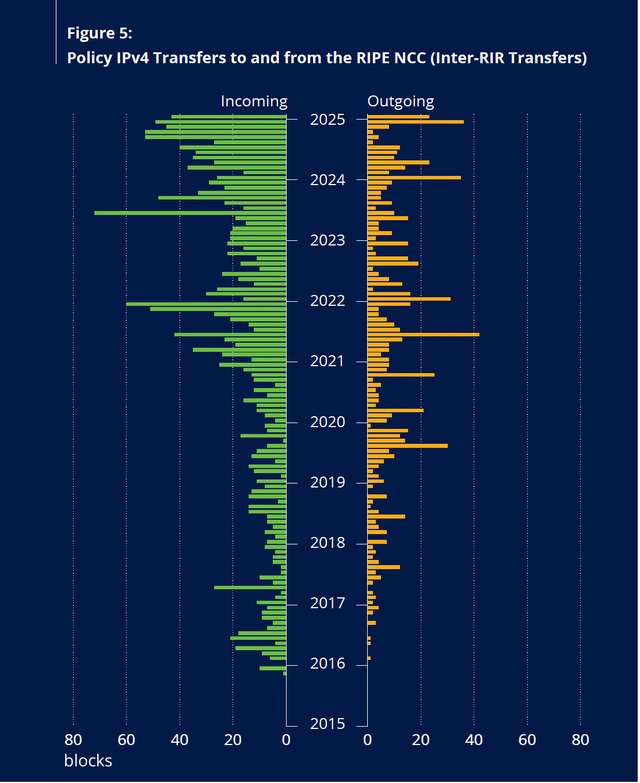The second in our series of IP reports explores the evolving role of IPv4 transfers as a necessary mechanism for managing address space in a post-exhaustion environment, alongside broader trends in availability, pricing, and usage. The report also highlights the operational and policy context in which transfers take place and offers practical observations for those involved in managing IP resources.

Our latest report draws together input gathered from a series of interviews - with network operators, ISPs, cloud providers, regulators and other industry experts - conducted in 2024 by an external consultancy (NEXOP). Insights gained over the course of those interviews are presented in the context of a broader analysis of RIPE NCC registry data.
The goal of the report is to provide actors in the telecom sector - i.e., ISPs, cloud service providers, managers, and also regulators and government representatives who oversee the operation of the Internet in their countries - with insights on the following topics:

- IPv4 Scarcity and Its Impact on Network Operators
- How Operators Address the IPv4 Scarcity
- The State of IPv4 and Resource Distribution
- Inside IPv4 Transfers: History and Current Dynamics
- Overall IPv4 Transfer Market Dynamics
- Transfer Dynamics
- Transfers from Other RIRs to the RIPE NCC
- The Evolution of IPv4 Transfer Policies and Future Outlook
- IPv6 Adoption and Challenges
- IPv6 Deployment Among RIPE NCC Members
- Global IPv6 Adoption
- Policy and Regulation




Comments 0